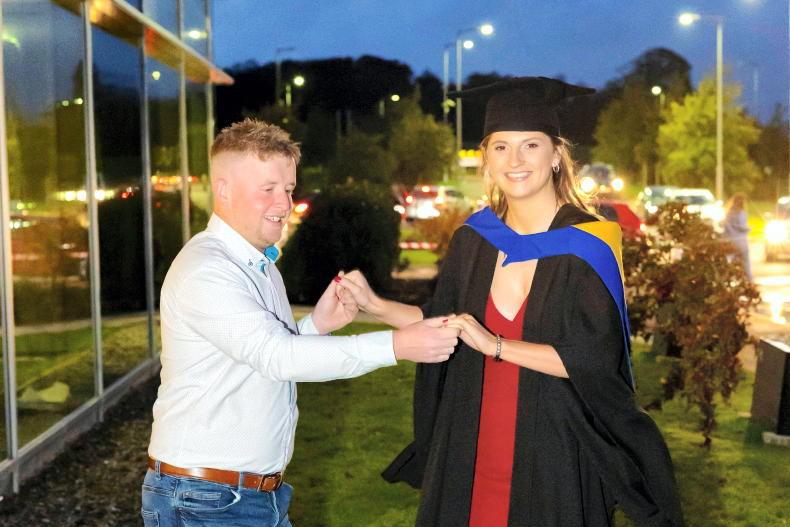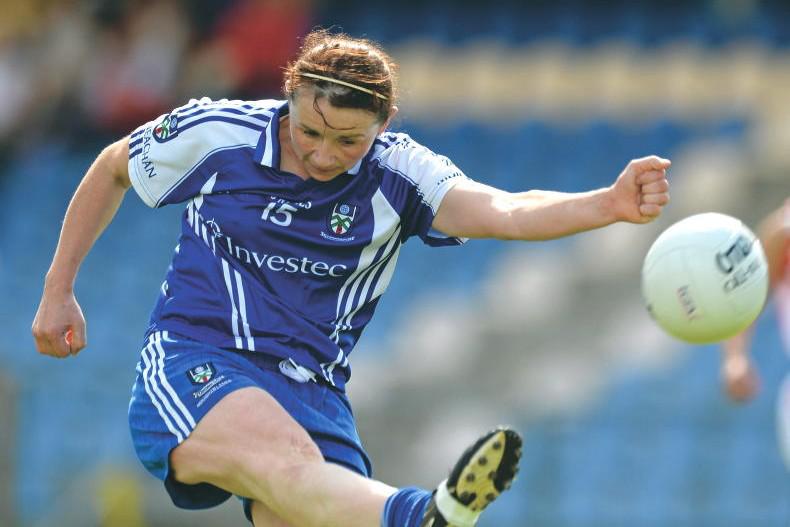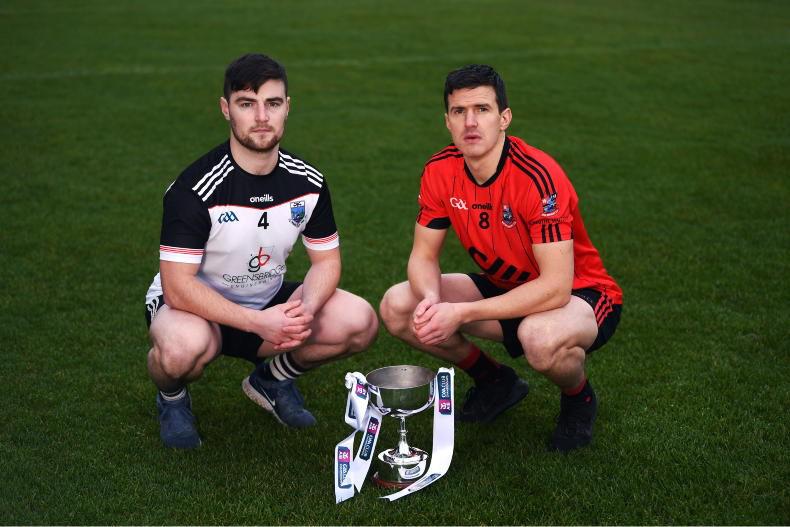Regardless of how the rest of Liverpool’s season goes, the summer will be one of flux.
The announcement late last week that manager Jürgen Klopp would be leaving the club caught a lot of people by surprise. Since taking over in 2015, the German has obviously done a great job – winning the Champions League, Premier League, FA Cup and League Cup – but beyond that he has provided a presence that has gone beyond football.
The Liverpool fans feel a deep emotional attachment with Klopp and the person replacing him will face a big task. It may even be the case that it proves to be like when Sir Alex Ferguson retired as Manchester United manager more than a decade ago – or Liverpool themselves after Kenny Dalglish left in 1991 – and the next man struggles. And the man after him and the man after him, and so on.
Even when success is initially maintained, like when Cork won the All-Ireland ladies’ SFC under Ephie Fitzgerald in 2016 after Eamonn Ryan had led the team to ten titles in 11 years, a period of transition follows. Cork are still waiting to add to that win of seven and a half years ago.
Following a legend can be tough, something we might see with the Ireland rugby team during the Guinness Six Nations Championship, which starts this weekend.
Defending champions
Ireland are of course the defending champions – and the country has only won back-to-back championships twice before, in 1948 and 1949 and again in 2014 and 2015 – but there is one big difference between this and last year. Or this year and the last decade.
While Jonathan Sexton made his international debut in 2009, there was a considerable obstacle to his aspirations to start at out-half, in the shape of Ronan O’Gara. It took a few years for the Leinster man to supersede his Munster rival but the achievement was all the more impressive for that.
After becoming the undisputed playmaker, Sexton produced a high level of consistency, capable of executing in the high-pressure moments, culminating in the grand-slam victories of 2018 and 2023.
When Rory Best retired after the 2019 World Cup, Sexton – world player of the year in 2018 and nominated on two other occasions – was the natural choice to succeed him as captain and he was inspired rather than inhibited by the role.
The only downside is that, now that Sexton has retired, Ireland have to find replacements at skipper and in the number 10 jersey.
To that end, the decision of Andy Farrell to make Peter O’Mahony captain for the Six Nations is a sound one. The Cork native has plenty of experience and has a good record as captain – that he won’t be around for the 2027 World Cup was not and should not have been a factor.
Rather than rushing into a choice of long-term captain that might not have worked out, Farrell can make a considered decision, satisfied that O’Mahony will be a steady choice in the interim.
The other call, regarding who will succeed Sexton as fly-half, is more pressing but, equally, is more of a case of continuous assessment. Going to France for a Friday night opener will be a stiff test but the success or failure of the venture cannot be taken as absolute proof either way about the prospects of the pretenders to the crown.
Red card for red-card anomaly?
We don’t like to blow our own trumpet but is it really a coincidence that, last week, we wrote that goal-line technology is something the GAA could look at and then it emerges that Central Council have considered the need for a television match official?
The answer is yes, it’s a complete coincidence because last week’s monthly Central Council meeting debated the results of a preliminary report of a workgroup. It’s not something that will happen in the immediate future – the workgroup identified the need for a lead-in time of at least 18 months – but it’s surely a rubicon that will have to be crossed at some stage.
An advantage of sorts is that those charged with coming up with something will have seen what works to a large degree (rugby union) and what can threaten to reduce the enjoyment of a sport by being too pedantic (soccer).
Something else discussed at the meeting that could have a quicker effect is the Central Council’s motion for next month’s annual GAA Congress to address a long-standing anomaly.
Currently, if a team has a player, or players, sent off in a game that goes to extra time, they can start the additional period with 15 players (albeit with the dismissed player prevented from returning). By that logic, you would think that a player suspended for the original game would be free to take his place for extra time but, despite it being considered a ‘new game’, the suspension is not deemed to have been served.
In addition, yellow cards incurred in normal time are wiped from the slate for extra time, meaning that a player could be booked twice and still remain on the field. It is proposed to also close that loophole. To our mind, it seems very straightforward but GAA democracy rarely is.
A few years ago, there was a motion to punish dissent by bringing frees forward 30 metres rather than the current 13-metre penalty. It would have greatly increased the possibility of a score resulting from backchat but most of the voters weighed up the downside of being on the receiving end rather than the upside of being a beneficiary. It’s not beyond the bounds of possibility that something similar would happen here.
Read more
Meet the Maker: Irish bog oak sculptor Eamonn Heffernan
Katherine O'Leary: getting through the to-do list in preparation for calving
Regardless of how the rest of Liverpool’s season goes, the summer will be one of flux.
The announcement late last week that manager Jürgen Klopp would be leaving the club caught a lot of people by surprise. Since taking over in 2015, the German has obviously done a great job – winning the Champions League, Premier League, FA Cup and League Cup – but beyond that he has provided a presence that has gone beyond football.
The Liverpool fans feel a deep emotional attachment with Klopp and the person replacing him will face a big task. It may even be the case that it proves to be like when Sir Alex Ferguson retired as Manchester United manager more than a decade ago – or Liverpool themselves after Kenny Dalglish left in 1991 – and the next man struggles. And the man after him and the man after him, and so on.
Even when success is initially maintained, like when Cork won the All-Ireland ladies’ SFC under Ephie Fitzgerald in 2016 after Eamonn Ryan had led the team to ten titles in 11 years, a period of transition follows. Cork are still waiting to add to that win of seven and a half years ago.
Following a legend can be tough, something we might see with the Ireland rugby team during the Guinness Six Nations Championship, which starts this weekend.
Defending champions
Ireland are of course the defending champions – and the country has only won back-to-back championships twice before, in 1948 and 1949 and again in 2014 and 2015 – but there is one big difference between this and last year. Or this year and the last decade.
While Jonathan Sexton made his international debut in 2009, there was a considerable obstacle to his aspirations to start at out-half, in the shape of Ronan O’Gara. It took a few years for the Leinster man to supersede his Munster rival but the achievement was all the more impressive for that.
After becoming the undisputed playmaker, Sexton produced a high level of consistency, capable of executing in the high-pressure moments, culminating in the grand-slam victories of 2018 and 2023.
When Rory Best retired after the 2019 World Cup, Sexton – world player of the year in 2018 and nominated on two other occasions – was the natural choice to succeed him as captain and he was inspired rather than inhibited by the role.
The only downside is that, now that Sexton has retired, Ireland have to find replacements at skipper and in the number 10 jersey.
To that end, the decision of Andy Farrell to make Peter O’Mahony captain for the Six Nations is a sound one. The Cork native has plenty of experience and has a good record as captain – that he won’t be around for the 2027 World Cup was not and should not have been a factor.
Rather than rushing into a choice of long-term captain that might not have worked out, Farrell can make a considered decision, satisfied that O’Mahony will be a steady choice in the interim.
The other call, regarding who will succeed Sexton as fly-half, is more pressing but, equally, is more of a case of continuous assessment. Going to France for a Friday night opener will be a stiff test but the success or failure of the venture cannot be taken as absolute proof either way about the prospects of the pretenders to the crown.
Red card for red-card anomaly?
We don’t like to blow our own trumpet but is it really a coincidence that, last week, we wrote that goal-line technology is something the GAA could look at and then it emerges that Central Council have considered the need for a television match official?
The answer is yes, it’s a complete coincidence because last week’s monthly Central Council meeting debated the results of a preliminary report of a workgroup. It’s not something that will happen in the immediate future – the workgroup identified the need for a lead-in time of at least 18 months – but it’s surely a rubicon that will have to be crossed at some stage.
An advantage of sorts is that those charged with coming up with something will have seen what works to a large degree (rugby union) and what can threaten to reduce the enjoyment of a sport by being too pedantic (soccer).
Something else discussed at the meeting that could have a quicker effect is the Central Council’s motion for next month’s annual GAA Congress to address a long-standing anomaly.
Currently, if a team has a player, or players, sent off in a game that goes to extra time, they can start the additional period with 15 players (albeit with the dismissed player prevented from returning). By that logic, you would think that a player suspended for the original game would be free to take his place for extra time but, despite it being considered a ‘new game’, the suspension is not deemed to have been served.
In addition, yellow cards incurred in normal time are wiped from the slate for extra time, meaning that a player could be booked twice and still remain on the field. It is proposed to also close that loophole. To our mind, it seems very straightforward but GAA democracy rarely is.
A few years ago, there was a motion to punish dissent by bringing frees forward 30 metres rather than the current 13-metre penalty. It would have greatly increased the possibility of a score resulting from backchat but most of the voters weighed up the downside of being on the receiving end rather than the upside of being a beneficiary. It’s not beyond the bounds of possibility that something similar would happen here.
Read more
Meet the Maker: Irish bog oak sculptor Eamonn Heffernan
Katherine O'Leary: getting through the to-do list in preparation for calving









SHARING OPTIONS